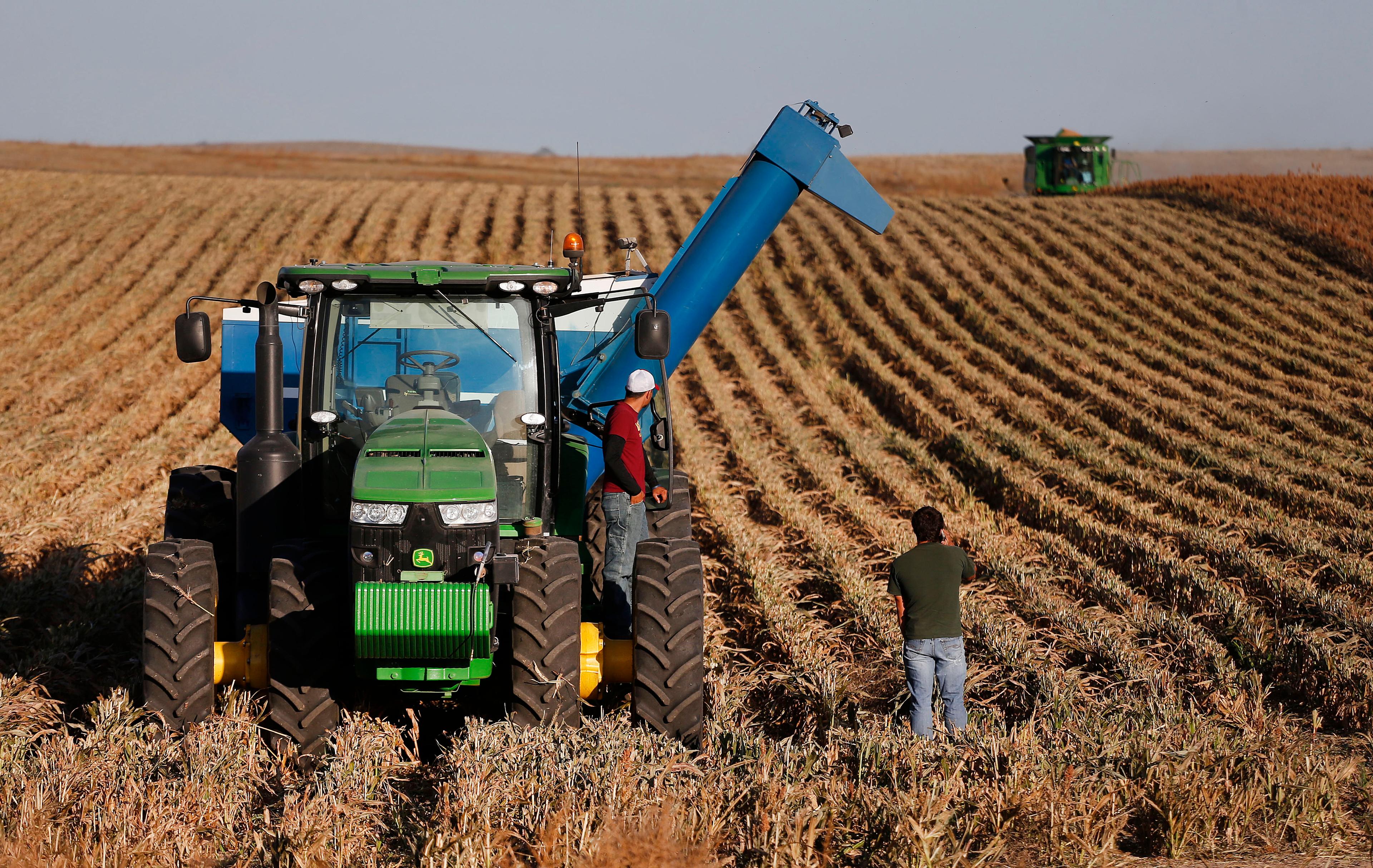

Negotiations around the North American Free Trade Agreement continue, with President Trump saying a new deal is likely in the next few weeks. It’s not yet clear what the changes might be, which has some Coloradans worried.
Yuma County farmer and rancher Roc Rutledge raises cattle and around 30,000 pigs a year. His corn and wheat are his biggest source of income, he said, but prices on corn are low. For him, the best way to increase its value — along with other U.S. agricultural products — is to export to those who need them.
About 47 percent of Mexico’s imports come from the U.S. and Rutledge is afraid they’ll start to trade more with other countries and hurt his business.
“Last year I just built a new house and had a set of twins, Rutledge said. “This was the wrong year to do it.”
According to the World Trade Center, Colorado exported $2.7 billion worth of goods through NAFTA in 2017. Meat products were at the top of the list. Rutledge, who’s already tightening his budget, said that lots of people in Yuma are worried about changes to NAFTA. Especially if Trump pulls out of the agreement entirely, something the president has threatened to do.
Before NAFTA, goods traded between Canada, Mexico and the U.S. were taxed. The idea behind the agreement was that by removing tariffs, trade would increase and things would become cheaper to make and buy. Since the agreement, U.S. trade with the two countries has more than tripled.
Trump argues the U.S. loses with NAFTA because of trade deficits where the U.S. buys and imports more than it sells and exports. Colorado is no exception: the state imported nearly $2.5 billion more than it exported in 2017. Some economists say that’s a good thing, and means the U.S. has money to spend.
Rutledge was a Trump voter and isn’t happy with how the president is handling the situation.
“I think he flies too much off of his shirt cuff, and doesn’t talk to anybody about the best strategy,” Rutledge said. “On a lot of his policies, one day he’ll say one thing and the next day totally turn around and do something different.”
Uncertainty like that makes it hard to plan, which beer brewer Kevin Selvy knows firsthand. The founder and CEO of Crazy Mountain Brewery said it took years for his company to set up a deal with an importer in Mexico, which they secured right before the 2016 presidential election and then got a call back days after the result was announced..
“They let us know that with the uncertainty of NAFTA, and the looming potential of it going away or changing drastically, they just couldn't move forward,” Selvy said.
The trade relationship with Canada is also a concern for Selvy. Our neighbors to the north are the largest consumer of American craft beer outside of the states. Colorado exported nearly $20 million worth of beer to Canada in 2017. And the barley to make Selvy’s beer is imported from there.
“You know, nobody really understands what it would look like if NAFTA did go away,” Selvy mused.
Some believe as the president does, that NAFTA isn’t a fair deal. Josh Downey, the president of the Denver Area Labor Federation AFL-CIO, said the trade agreement has failed working families with lost jobs and low wages.
“We feel like that's because CEOs in large corporations basically wrote this trade deal, and it's designed for global corporations and CEOs to benefit them,” Downey said.
The state says it doesn’t have numbers going back to 1994 when NAFTA started. However, since 2003, more than 19,000 people in Colorado have been told they might be eligible for Trade Adjustment Assistance. The assistance benefit is for workers who have lost jobs at companies found to have been “trade impacted.” Colorado has spent more than $17.5 million on the program in the last five years.
It’s not just U.S. workers that are hurting. Downey said labor in Mexico is especially underpaid, which drives down wages across North America to compete. Downey wants NAFTA negotiations to raise standards for all workers, and he’s “cautiously optimistic” about it.
”President Trump is a businessman, so there is concern about a corporate-driven economic policy,” Downey said. “That we renegotiate NAFTA and instead of helping American workers, it is just amplifying the corporate greed.”
The union won’t go as far to say the U.S. should withdraw from NAFTA, Downey said. A report from the Congressional Research Service said bailing from the trade pact could cause job losses in all three countries, with significant disruption to production chains. But it also said negotiations could be an opportunity to see how NAFTA hasn’t met expectations depending on how Congress and the president move forward.









